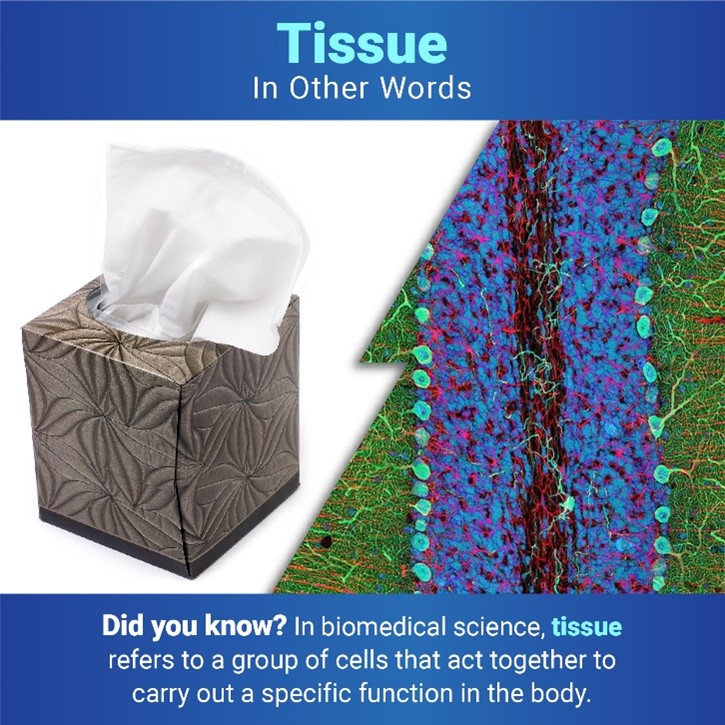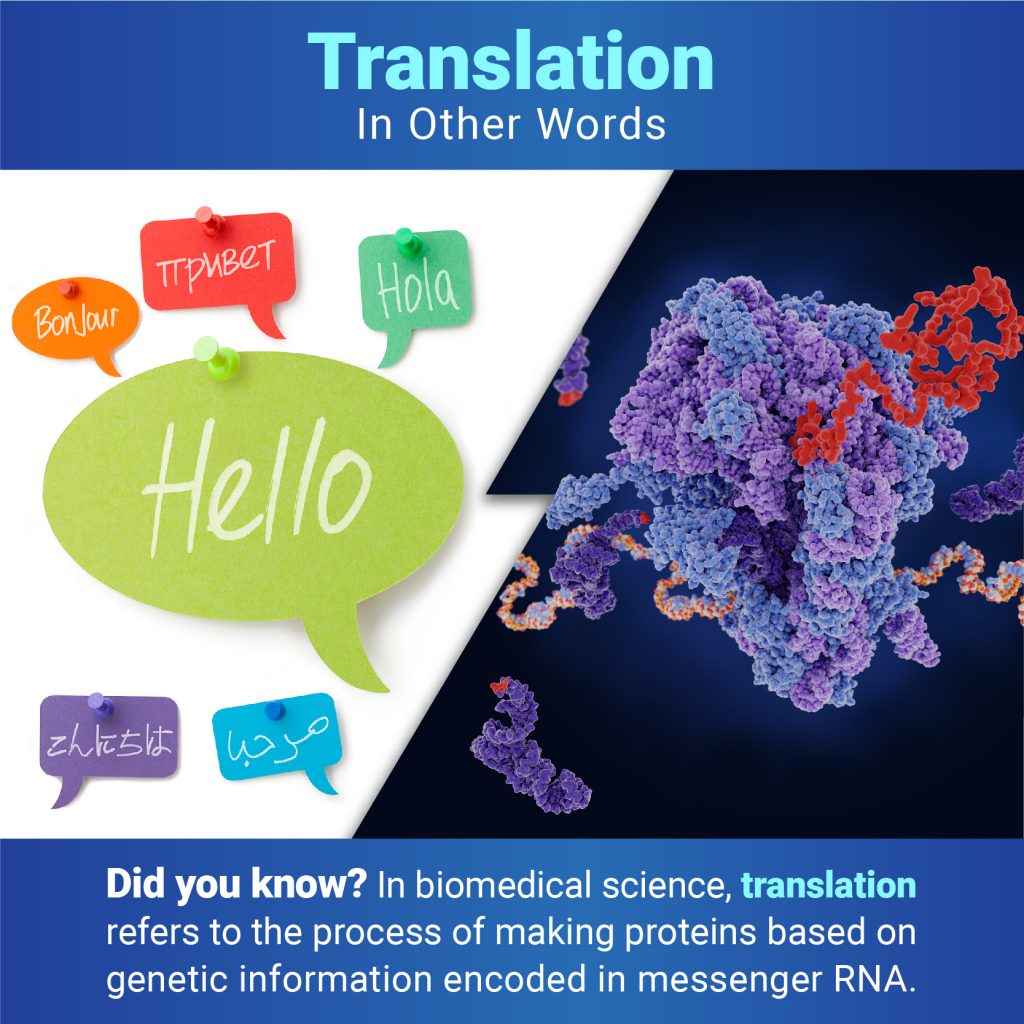When most of us hear the word tissue, we think of something we reach for when we have a runny nose. But in biology, a tissue is a group of cells that act together to carry out a specific function.

Your body has four basic types of tissues:
- Muscle tissue provides movement. Types include voluntary muscles, like those in the arms and legs, and involuntary muscles, such as those that move food through the digestive system.
- Nervous tissue carries messages throughout the body and includes the brain, spinal cord, and nerves.
- Connective tissue supports other tissues and binds them together. Examples include ligaments, tendons, bones, and fat.
- Epithelial tissue creates protective barriers and includes the skin and the linings of internal passageways.


